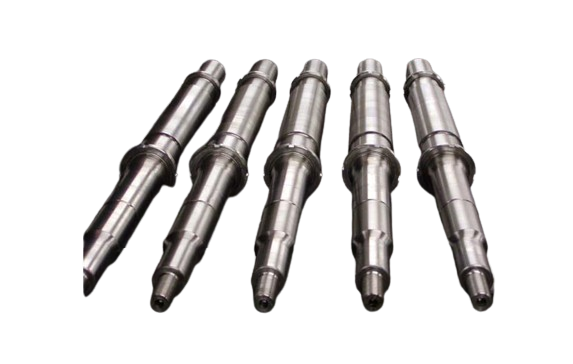
PUMP SHAFT
Pump shafts are typically made from materials that provide strength, corrosion resistance, and durability. Here are some common materials of construction (MOC) for pump shafts:
Carbon Steel (CS):
- Economical option.
- Suitable for water, oil, and gas applications.
- May require coating or lining for corrosion protection.
Stainless Steel (SS):
- Corrosion-resistant.
- Suitable for chemical, pharmaceutical, and food processing applications.
- Varieties: 304, 316, 410, and 420.
Duplex Stainless Steel (DSS):
- High strength and corrosion resistance.
- Suitable for demanding applications in chemical, oil, and gas industries.
- Varieties: 2205, 2507, and 4501.
Alloy Steel:
- High strength and resistance to corrosion and wear.
- Suitable for applications in oil, gas, and chemical industries
- Varieties: 4130, 4140, and 8630.
Titanium (Ti):
- High strength-to-weight ratio and corrosion resistance.
- Suitable for applications in marine, chemical, and aerospace industries.
- Varieties: Ti-6Al-4V and Ti-5Al-2.5Sn.
Nickel-Alloy:
- High corrosion resistance and strength.
- Suitable for applications in chemical, oil, and gas industries
- Varieties: Inconel 625, Incoloy 825, and Monel 400
Coatings and Linings:
Applied to base materials for additional corrosion protection. Options: chrome plating, nickel plating, ceramic coating, and rubber lining.
When selecting a pump shaft material, consider factors such as:
- Fluid properties (corrosiveness, temperature, pressure).
- Operating conditions (speed, load, vibration).
- Maintenance and repair requirements.
- Cost and availability.
- Industry standards and regulations.
References:
- TranspumpServ website and documentation
- Industry standards and regulations (ISO, API, CE).
